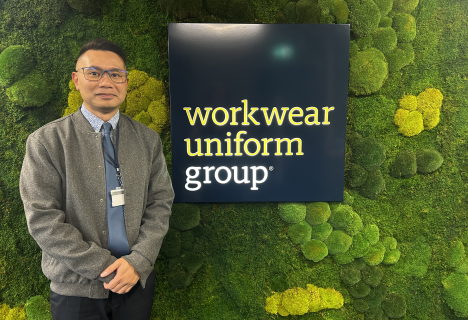In the world of corporate uniforms, aesthetics have always been king. But today, a uniform’s true value lies not just in how it looks, but in how it’s made. For brands like Marks & Spencer and NatWest, sustainability is no longer a footnote – it’s the most important consideration when choosing a partner. At Incorporatewear, we believe that an ethical supply chain and a commitment to the planet are the ultimate expressions of brand integrity and modern style.
The impact: Every stitch tells a story
Every uniform choice carries a real-world impact
The fashion and textile industries are major contributors to global pollution. The statistics are a stark reminder of the need for change:
- The average European discards 11 kg of textiles each year. This staggering amount contributes to a mountain of waste, with 336,000 tonnes of unwanted clothes ending up in UK landfills annually.
- Making a single cotton T-shirt can consume up to 2,700 litres of water, a resource equivalent to what one person drinks over two and a half years.
- On a more positive note, millions of plastic bottles are now being recycled into fibres for garments, offering a tangible way to reduce waste and minimise the use of virgin materials.
For a corporate buyer, this means every uniform choice carries a real-world impact. Partnering with a provider that lacks a genuine commitment to sustainability is a direct contradiction of your brand’s values and can expose you to significant reputational risk, undermining your Environmental, Social, and Governance (ESG) goals.
Your checklist: How to suss-out a sustainable partner
Don’t settle for greenwashing.
ITo ensure you’re partnering with a truly sustainable and responsible provider, you need to ask the right questions and demand transparent answers. This is your due diligence, and it’s essential for making a choice that reflects your brand’s integrity.
Here are the crucial questions to include in your procurement process:
Do you have a carbon reduction plan and when do you expect to be at net zero?
A concrete plan with measurable targets is non-negotiable. At Workwear Uniform Group, we are committed to being net zero by 2050, with clear, near-term targets to achieve this.
What happens to your garments at the end of their life?
A truly sustainable supplier has a circular approach. We, for example, have a “zero to landfill” policy and can repurpose end-of-life garments into materials like wadding for future products.
Do you have any Science-Based Targets? What are they?
Science-Based Targets (SBTs) provide a clear path for companies to reduce greenhouse gas emissions in line with the Paris Agreement goals. Look for suppliers who have publicly committed to these standards.
What’s your approach to landfill?
Look for a supplier that has a clear policy to avoid landfill altogether, preferring to recycle, reuse, or repurpose every possible component.
Innovation: The engine of sustainable style
Sustainability isn’t just about what you avoid.
It’s about what you do better. The most sustainable partners are often the most innovative – they invest in technology and processes that reduce their environmental impact while increasing efficiency.
For example, our £15m fully automated robot warehouse is a prime example of this principle in action. It runs 24/7, handling massive volumes with unparalleled accuracy.
Crucially, this technology has cut our emissions per pick by an impressive 75%. To put that into perspective, the power used to run 10 of our robots is equivalent to that of just one domestic vacuum cleaner.
This is a powerful testament to how a forward-thinking, innovation-led approach can deliver both commercial excellence and environmental benefits.
By asking the right questions and looking for tangible evidence of a commitment to sustainability, you can select a uniform provider that not only meets your aesthetic and operational needs but also serves as a true partner in your corporate social responsibility goals. This strategic choice is an investment in a more sustainable future for your brand and our planet.






